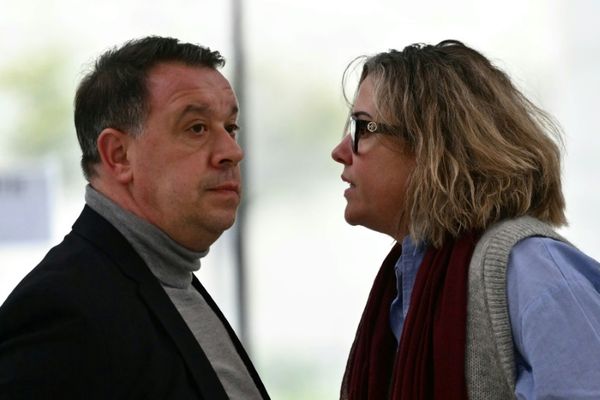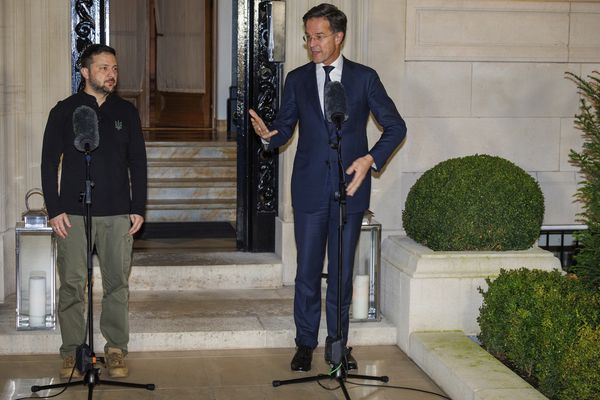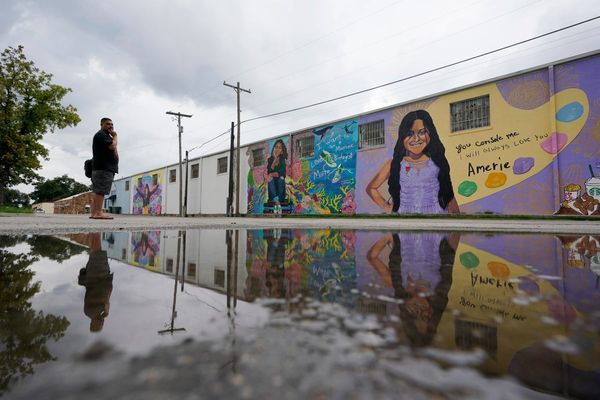Twitter (TWTR) seems to be behind him.
If Jack Dorsey, the founder and former CEO of the microblogging website continues to monitor behind the scenes the eventful acquisition of the platform for $44 billion by his friend and fellow billionaire Elon Musk, he's being quiet about it. Instead, the entrepreneur has decided to finally take action to which is one of his latest fights.
Dorsey wants a new and decentralized internet.
The emergence of the blockchain technology and the crypto sphere -- cryptocurrencies, decentralized finance (DeFi) -- is indeed accompanied by a desire for a democratized internet, which would not be the monopoly of large entities such as Alphabet (Google) (GOOGL) or Meta Platforms (META), the parent company of social networks Facebook and Instagram.
Who Will Own the New Generation of Internet?
Some have called this new iteration of internet web 3, which would replace current internet web 2. But for several months, Dorsey has been expressing his dissatisfaction with this web 3. The reason for his anger is that venture capital firms have a hold on startups working on web 3. Therefore, we would simply go from an internet controlled by Google, Meta, and others to an internet dominated by VCs.
"You don’t own “web3," Dorsey, who is the founder and CEO of fintech Block (SQ), tweeted on Dec. 20. "The VCs and their LPs do. It will never escape their incentives. It’s ultimately a centralized entity with a different label. Know what you’re getting into…"
"I wish I could vibe more with this, but you’ve taken a lot of VC money so I don’t know what you mean," a Twitter user commented.
"And this is why I know exactly what I mean," Dorsey answered.
Web 3 is “somewhere between a and z,” Dorsey also wrote, referring to a16Z, a VC firm cofounded by legendary venture capitalist Andreessen Horowitz. Andreessen then blocked Dorsey on Twitter.
Andreessen, who cofounded early internet platform Netscape and was an early investor in Facebook, has been an early backer of web 3. He has already invested more than $3 billion into various crypto and web 3 startups.
Tired of criticizing web 3 actors, Dorsey has just launched, with TBD, an alternative to web 3. This alternative, which is a decentralized internet, is called web 5.
TBD is Dorsey's Bitcoin-focused venture he launched last spring.
"Web5: an extra decentralized web platform," that "puts you in control of your data and identity," TBD said on its website.
"The web democratized the exchange of information, but it's missing a key layer: identity. We struggle to secure personal data with hundreds of accounts and passwords we can’t remember. On the web today, identity and personal data have become the property of third parties."
"Web5 brings decentralized identity and data storage to your applications. It lets devs focus on creating delightful user experiences, while returning ownership of data and identity to individuals."
Dorsey later confirmed on Twitter that web 5 "will likely be our most important contribution to the internet."
He did not hesitate when a commentator asked him what justified him launching web 5 when we were still in the infancy of web 3.
"It’s basis on single point of failure systems (eth, solano, *) and lies being told to people about who owns and controls it," the billionaire entrepreneur responded, referring to blockchain platforms ethereum and solana.
When Andreessen asked what happened to web 4 so we skipped it and went straight to web 5, Dorsey said: "same thing that happened to web3."
When Will Dorsey Launch Web5?
Web 3 is a decentralized internet built on the blockchain — unlike the current version, it has the potential to have "shares" that are owned by users in the form of cryptocurrency tokens.
Proponents say that it would be owned "by the people" and less dependent on corporate backing but Dorsey believes it can instead be subject to the whims of wealthy entrepreneurs who have a lot more money to buy shares than the average person.
Conversely, the billionaire and TBD claim that you don't need to buy tokens to invest in web 5, which will also be built on the blockchain.
"Let me clear this up right now, everybody: No. There are no tokens to invest in with web5. Kthx," Mike Brock, who leads TBD, wrote on Twitter.
One of the criticisms of Dorsey and TBD is that they announce web 5 without launching web 5. In a nutshell, isn't that just words?
"I get the criticism that we announced web5 before releasing web5," Brock responded. "But the thing is, when we launched TBD, this is how we promised to do things. We promised we'd have public, transparent and open source roadmaps. That's what we're doing."
"Part of the benefit of this is, that we can get more eyeballs on our ideas, get useful feedback, and even accept contributions from the community. It's putting ourselves out there and being vulnerable and open. It's a radical way to work, and we're committed to it."
Here is a use case of web 5, this decentralized internet, given by TBD.
"Bob is a music lover and hates having his personal data locked to a single vendor. It forces him to regurgitate his playlists and songs over and over again across different music apps. "
"The way out offered by web 5: "Bob can keep this data in his decentralized web node. This way Bob is able to grant any music app access to his settings and preferences, enabling him to take his personalized music experience wherever he chooses."







